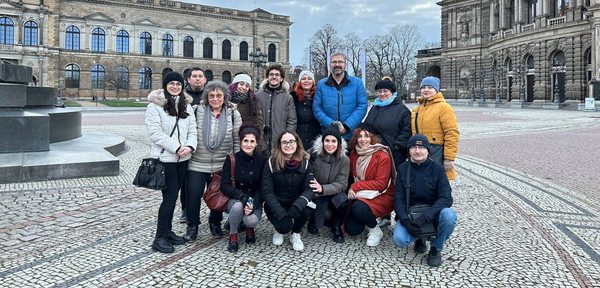DIG-i-READY partners meet in Dresden for a training on going digital

Last week, DIG-i-READY partners met in Dresden for a week of trainings and learning activities. Participants from all over Europe took part in five days of meetings at the Technical University of Dresden, to discuss about the digitalisation of education in vocational, education and training (VET) centres.
This training is part of the activities planned for the DIG-i-READY project, whose goal is to allow students with special educational needs (SEN), to efficiently study online in case of emergency, such as the COVID-19 pandemic. The project focuses on VET centres’ students, and it aims to make them autonomous even when learning from home. By the end of the lifetime of the project, a good practices catalogue of digital tools for inclusive methods of learning and a handbook will be produced.
Professionals came from many European countries to share knowledge and explore new digital tools to make the educational path of their students with SEN easier, at this training. The sessions were coordinated by Internationaler Bund, the JKU University of Linz, the Technical University of Dresden and AIAS Bologna. Teachers learnt how to use new technologies, such as the Padlet or the chat with an artificial intelligence and provided feedback on if and how these instruments can be useful in VET centres. Moreover, they discussed what policy changes should be implemented at the European and local level.
Many useful ideas were collected during the sessions. These suggestions will be useful for all the partners to finally design guidelines and a repository of instruments to help students ‘going digital’, respecting their needs. Hopefully, DIG-i-READY project will also be able to implement a change on the decision-making level, aiming at more inclusive schools in Europe, with advanced learning technologies.

